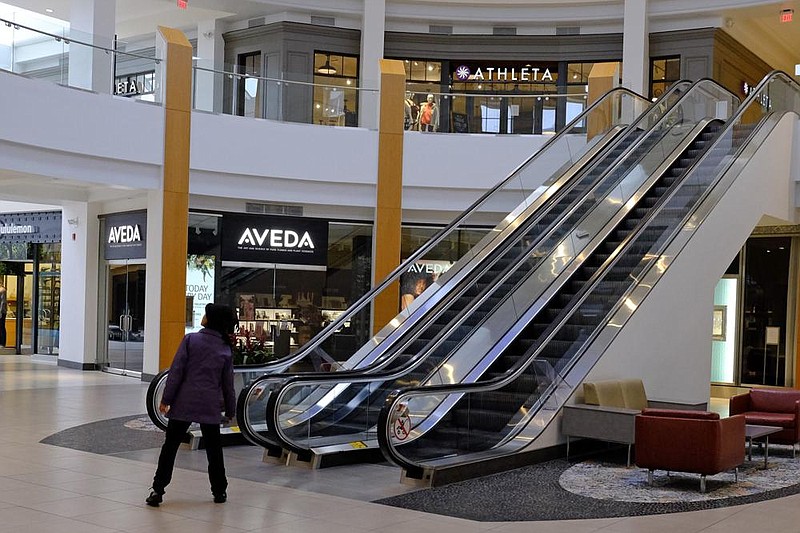Mall operator Simon Property Group Inc. has been in talks with Amazon.com Inc. to turn some empty store space formerly occupied by anchor tenants such as J.C. Penney Co. Inc. and Sears Holdings Corp. into Amazon fulfillment centers, The Wall Street Journal reported, citing people familiar with the matter.
The discussions started before the coronavirus pandemic, with the two companies exploring the idea of buying out occupied space from the retailers in some cases.
Amazon has also been in talks with multiple mall landlords about putting its coming grocery-store chain in J.C. Penney locations, a person familiar with the matter told the Journal, though it couldn't be determined if that included Simon malls.
Penney has 63 stores in Simon malls and Sears has 11 stores, according to its annual filing.
It wasn't clear how many stores are under consideration for Amazon, and it is possible that the two sides could fail to reach an agreement, the newswire said.
Simon stocks closed up 5.3% in New York on Monday. Shares have fallen 50% so far this year. It's partnering with Brookfield Property Partners LP to jointly bid for J.C. Penney, which filed for bankruptcy in May.
Turning over anchor store spaces in prime locations to Amazon would represent a major shift in the mall business. If Simon rents the space as fulfillment centers, it would probably accept a considerable discount to what it could charge another retailer, the Journal said. The choice also won't please nearby tenants: fulfillment centers draw less foot traffic to the mall, and it would help make Amazon, seen as a disruptor of retail businesses, even more competitive.
Even before the pandemic, Amazon has already bought the sites of some failed malls and repurposed them to distribution centers. The e-commerce giant continues to open up new fulfillment centers to meet the demand for delivery, and its virus protection for warehouse workers has come under scrutiny.
J.C. Penney's lenders extended a key deadline over the weekend as negotiations continue about the fate of the Plano, Texas-based retailer.
The lenders' deadline was moved to Wednesday from Monday, according to a filing in the U.S. Bankruptcy Court in Dallas on Saturday. Penney's lenders are selecting a bidder for the Penney retail company, which is expected to exit Chapter 11 later this year.
A corresponding hearing has been rescheduled for Wednesday. A winning bidder for the 118-year-old department store chain could be approved by the end of the month.
The idea that empty mall stores are a good fit for Amazon to use as fulfillment centers is not a new one. Amazon has bought two malls in Ohio for new fulfillment centers. And interest from Amazon has been a topic of speculation throughout Penney's bankruptcy.
Penney filed for bankruptcy with a plan to split the company in two. One business would continue to operate the Penney chain of stores, and the other would be a real estate investment trust that would own Penney property, including stores and distribution centers.
Separately, Penney is in the process of selling 142 store leases where it's now holding store closing sales. Penney is also selling 24 stores that it owns, but it hasn't said whether those stores are closing.
While aging malls may not be attracting shoppers anymore, the large properties are located at major intersections and where people live in suburbs and smaller towns.
Four stores in Arkansas are among those Penney has said it will close -- in Batesville, Conway, El Dorado and Harrison.
Major department stores Macy's, Nordstrom, Neiman Marcus and Penney's have been using their mall stores as fulfillment centers in recent years, and they accelerated the pace of that activity during the pandemic. More shoppers tried curbside pickup for the first time when stores were closed in March, April and May.
While Amazon has been building large fulfillment centers in Dallas-Fort Worth, it has also moved into neighborhoods with smaller delivery stations. There are at least five so far, in Dallas, Farmers Branch, Fort Worth and Garland. And mall parking lots are big enough to park large numbers of Amazon delivery vans.
Delivery stations are part of Amazon's effort to get closer to the customer. Those buildings are the final stop before an order heads out for delivery. Packages are sorted into routes to make sure promised delivery times are met, according to Amazon's website.
Information for this article was contributed by Sebastian Tong and Yueqi Yang of Bloomberg News and by Maria Halkias of The Dallas Morning News.
